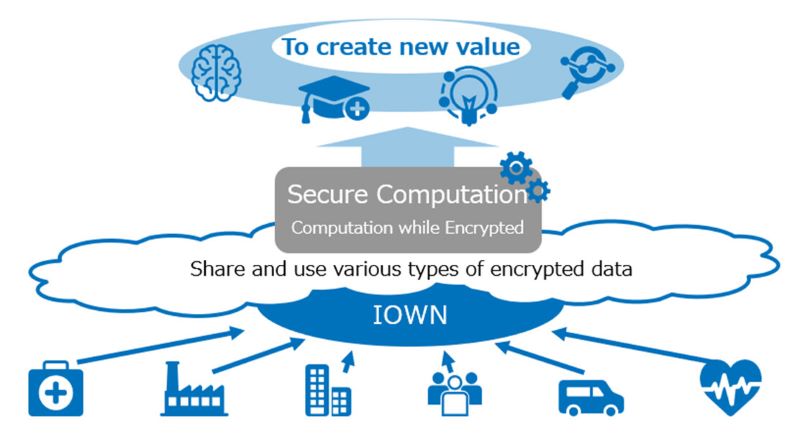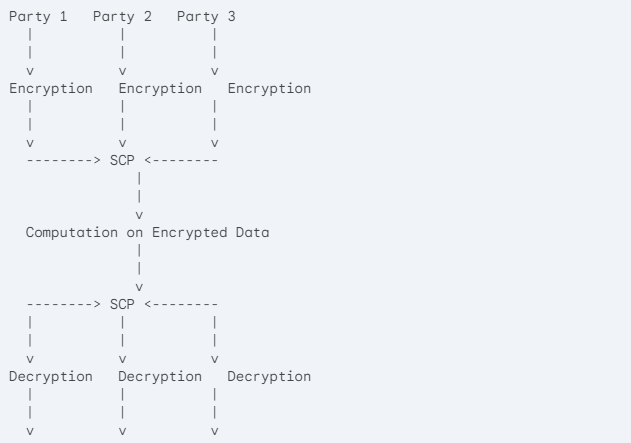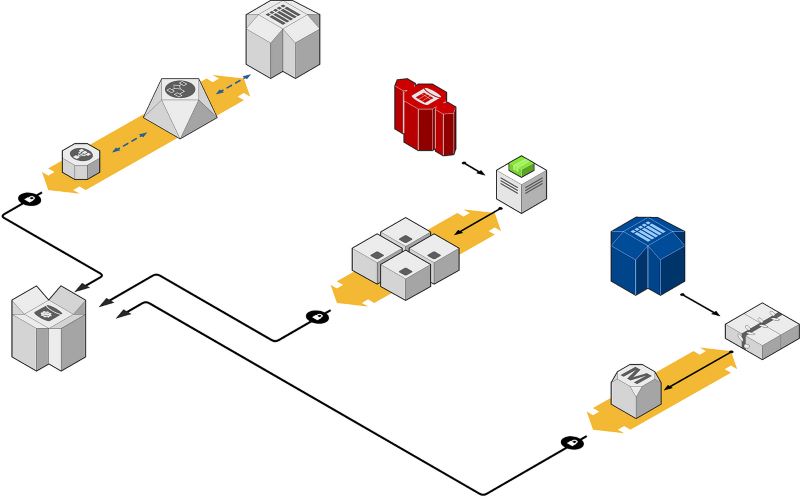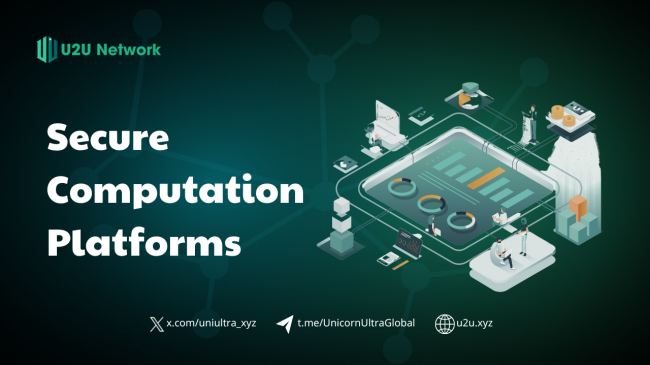In today's digital landscape, safeguarding data integrity and privacy amid increasing cyber threats is paramount. Enter Secure Computation Platforms (SCP), revolutionizing how we handle sensitive information. By enabling encrypted data computations and analyses, SCP ensures robust protection during data sharing and utilization, fostering trust and advancing digital transactions securely.
What are Secure Computation Platforms (SCPs)?
Secure Computation Platforms (SCPs) are advanced technological frameworks that allow organizations to derive valuable insights from sensitive data while ensuring privacy and unchanged security. Essentially, SCP enables multiple parties to perform computations and analyses on encrypted data without ever revealing raw information to each other.
Core technologies enabling SCP include
- Homomorphic Encryption: This breakthrough cryptographic technique allows computations to be performed directly on encrypted data. The result, when decrypted, matches the outcome if operations were conducted on the original, unencrypted data.
- Multi-Party Computation (MPC): MPC allows multiple parties to jointly compute a function on their inputs while keeping those inputs confidential. This is achieved by breaking down computations into smaller steps, distributing these steps among the parties, and securely combining the partial results to obtain the final outcome.
- Trusted Execution Environment (TEE): TEE provides a secure, isolated environment within a computer system where sensitive data and computations can be processed with high security and integrity.

Key benefits of Secure Computation Platforms include
- Data Integrity Protection: SCP ensures that sensitive data remains encrypted throughout the computation process, safeguarding it from unauthorized access or disclosure.
- Secure Collaboration: Organizations can collaborate on data analysis and derive valuable insights without compromising the security of their individual datasets.
- Regulatory Compliance: SCP helps businesses comply with stringent data protection regulations such as GDPR and HIPAA, minimizing the risk of data breaches and related penalties.
- Enhanced Data Utility: SCP allows organizations to fully harness the potential of their data for analysis, research, and innovation without sacrificing privacy.
- Building Trust: The use of SCP builds trust among involved parties by demonstrating a commitment to protecting sensitive information.
Types of Secure Computation Platforms
Versatile SCPs
These platforms are designed to serve a variety of applications and use cases. They provide a toolkit and flexible features that allow users to customize and adjust them according to their specific needs. For example, a versatile SCP could be used for sensitive data analysis in healthcare, finance, or marketing while ensuring data privacy and security.
Specialized SCPs
In contrast, specialized SCPs are developed to address specific issues within a particular industry or field. They often leverage domain-specific knowledge and specific requirements of that field to provide optimized features and solutions. For instance, a specialized SCP for healthcare might focus on protecting sensitive patient data, while one for the financial sector could concentrate on fraud detection and regulatory compliance.
How Secure Computation Platforms Work
Imagine a team of bakers wanting to create a new, exquisite recipe together without revealing their secret ingredients to each other. They decide to use a magical mixing bowl that allows them to combine their ingredients without anyone knowing what others have added. Somehow, this bowl mixes everything up and produces a perfect cake, while keeping each ingredient a mystery.
Secure Computation Platforms (SCPs) operate similarly. They enable multiple parties to collaborate on analyzing data without revealing their raw data to each other. Like the magical mixing bowl, SCPs combine and analyze encrypted data, ensuring that sensitive information remains secure throughout the process.
Step-by-step process
- Data Encryption: Before sharing their data, each party encrypts it using cryptographic algorithms. This encryption process transforms the data into an unreadable format, protecting it from prying eyes.
- Secure Data Sharing: The encrypted data is then sent to the SCP, acting as a trusted third party.
- Computation on Encrypted Data: The SCP performs desired computations directly on the encrypted data. This is made possible through advanced encryption techniques like homomorphic encryption and multi-party computation.
- Decryption of Results: After completing the computations, the SCP returns the encrypted results to the participating parties.
- Decryption of Results: Each party can then use their decryption key to reveal the final analysis results.
Visual Representation

Security considerations
The security of SCPs is crucial because they handle sensitive data. Strong security measures and protocols are essential to protect against unauthorized access, data breaches, and malicious attacks. Key security considerations include:
- Strong Encryption Algorithms: Using industry-standard encryption algorithms to ensure data remains secure throughout the process.
- Access Control: Implementing strict access controls to limit who can access the data and computations.
- Secure Communication Channels: Ensuring data is transmitted securely between parties and the SCP.
- Regular Security Audits: Conducting regular audits to identify and address any vulnerabilities in the system.
Use Cases of Secure Computation Platforms
Secure Computation Platforms (SCPs) are revolutionizing how industries handle sensitive data, allowing them to extract valuable insights while maintaining strict privacy and security standards. Here are some promising use cases across various fields:
Healthcare
Privacy-Preserving Research: SCPs enable researchers to analyze patient data from multiple sources without compromising sensitive information, facilitating large-scale studies on disease models, treatment outcomes, and drug efficacy while safeguarding patient privacy.
Genetic Data Analysis: SCPs empower researchers to analyze genetic data from diverse individuals to identify genetic markers for diseases and develop personalized treatment approaches.
Collaborative Diagnostics: Healthcare service providers can collaborate on diagnostics by securely sharing and analyzing patient data using SCPs, ensuring patient privacy and enhancing diagnostic accuracy.
Finance
Fraud Detection: SCPs can be used to analyze financial transactions across organizations to detect patterns indicative of fraud, money laundering, or other financial crimes without compromising customer-sensitive information.
Credit Risk Assessment: Financial institutions can collaborate on credit risk assessments using SCPs, leveraging a broader dataset while protecting the privacy of borrower data.
Anti-Money Laundering (AML): SCPs assist financial organizations in complying with AML regulations by securely sharing and analyzing transaction data to identify suspicious activities.

Marketing
Targeted Advertising: SCPs enable advertisers to target campaigns based on user interests and demographics without disclosing individual identities, thereby improving advertising effectiveness while respecting user privacy.
Customer Behavior Analysis: Businesses can analyze customer behavior across different platforms and channels using SCPs, ensuring individual privacy while delivering personalized experiences and recommendations.
Other Industries
Government: SCPs facilitate secure data sharing and analysis across various government functions, including census data analysis, election monitoring, and national security initiatives.
Energy: SCPs support secure energy trading and grid optimization, ensuring the privacy and security of sensitive energy consumption data.
Insurance: Insurance companies can use SCPs to assess risks and set insurance premiums more accurately by analyzing large datasets of claims and insured information without compromising individual privacy.
Manufacturing: SCPs can facilitate safe collaboration between manufacturers and suppliers in supply chain management, quality control, and product development.
Challenges and Future Directions
Secure Computation Platforms (SCPs) hold promise in protecting data privacy and enabling secure analysis and collaboration. However, to fully harness their potential and ensure widespread adoption, several key challenges need to be addressed:
Scalability: Current SCPs often struggle to efficiently handle large datasets and complex computations. Encryption and security protocols can impact performance, hindering their scalability for real-world applications. Ongoing research focuses on developing more efficient encryption algorithms and optimizing secure computation protocols to address this issue.
Usability: SCPs can be complex and require specialized knowledge to operate, limiting accessibility for non-technical users. Simplifying user interfaces, providing intuitive tools, and clear instructions would make SCPs more accessible to a broader audience.
Standardization: The lack of standardized protocols and interfaces for SCPs hampers interoperability and collaboration across different platforms and organizations. This fragmentation can slow down the development and adoption of SCPs across industries. Industry-wide collaboration to develop common standards is essential to tackle this issue.

Secure Computation Platforms (SCPs) are redefining how we approach data privacy and collaboration in the digital age. By enabling analysis and computation on encrypted data, SCPs not only address privacy concerns but also unlock unprecedented innovations across various industries.
While challenges remain, the continuous advancements in SCP technology promise a future where data can be harnessed more safely and efficiently than ever before. With cutting-edge SCP solutions, we are moving closer to a world where trust in digital transactions is not a distant goal but a present reality. As industries continue to embrace the immense potential of SCPs, we can anticipate a new era of secure, transparent, and innovative collaboration, powered by the strength of protected data. Follow U2U Network to update the latest information about Blockchain



.png)


